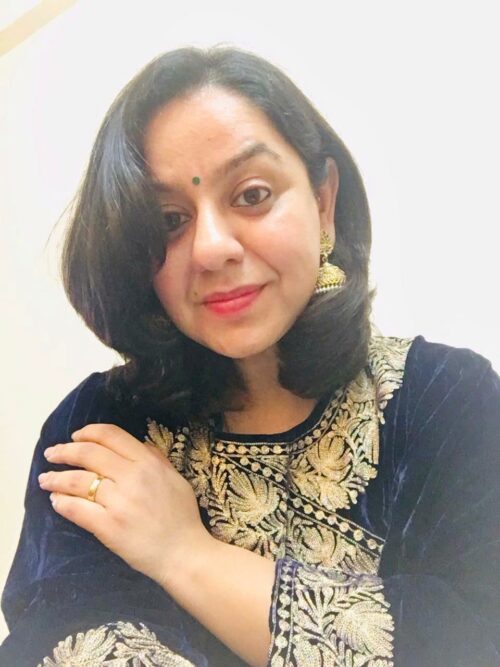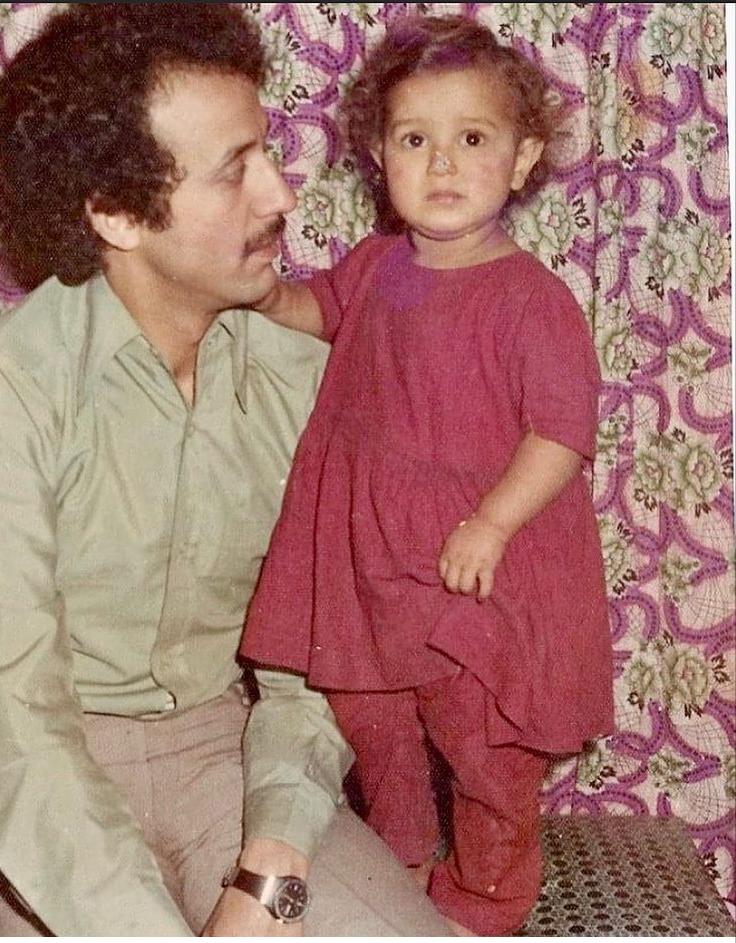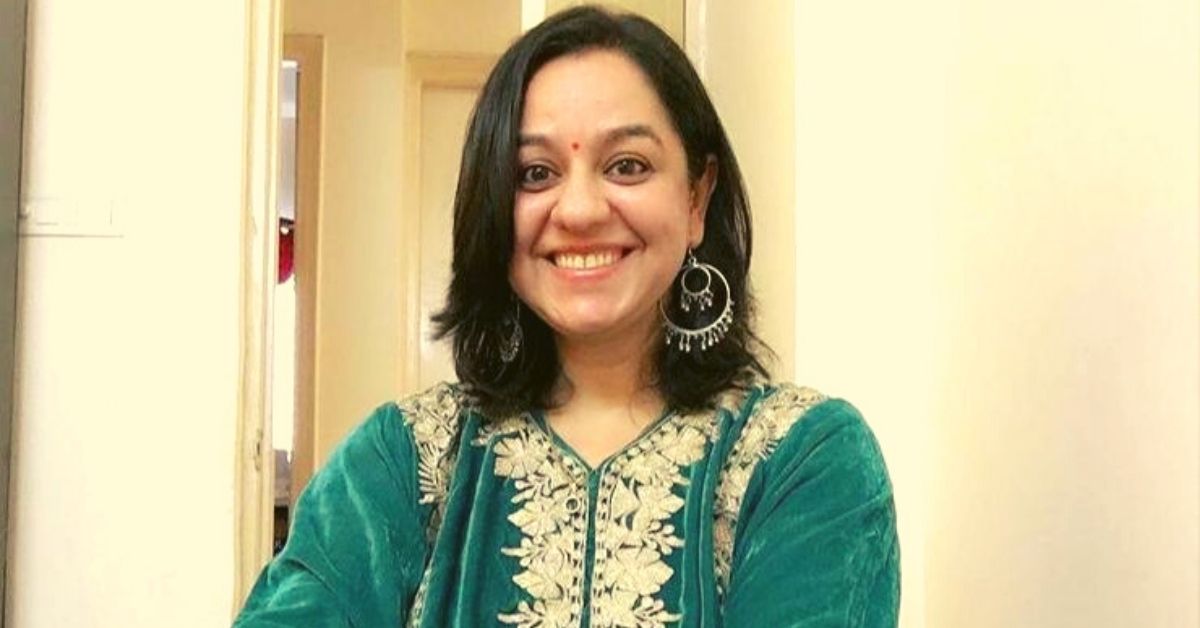Daneen (name changed), a Kashmiri woman in her seventies, would eagerly wait for her friend, Dida, who is half her age, every day. Daneen’s Alzheimer’s and deteriorating health may not have allowed her to socialise, but hearing Dida’s ‘namaskar, kaisa vare?’ (how are you) on video made her feel at peace. She enjoyed Dida’s chucklesome take on Kashmiri’s cultural mosaic, and loved her hand block-printed kurti with intricate threadwork.
When Daneen’s grandson, who lives outside Kashmir, heard about Dida’s impressive conversational skills for the first time, he tried to find out more about her. He was pleasantly surprised to learn that Dida is, in fact, a fictional character created by YouTuber Meanka Handu, who lives 700 kilometres away in Noida.
In 2019, when Daneen passed away, her grandson wrote to Meanka narrating the kind of impact her funny videos had on his grandmother.
“It was so heartwarming to know that I was able to make an ailing woman smile, day after day. According to her grandson, Daneen had assumed that I came on video just to greet her and talk to her about the nostalgic Kashmiri culture,” Meanka tells The Better India.

Meanka’s comic character was born in 2017, primarily to promote and preserve the Kashmiri language and culture, including family ties, history, art, and heritage. Her searingly honest and bitingly funny videos are a reminder of the common history, legacy and solidarity that has existed in the troubled territory of Jammu and Kashmir for centuries.
Her own journey involves a forced eviction from Srinagar during the mass exodus of 1990. Hailing from a Kashmiri Pandit family, she migrated to Noida when she was in Class II. Instead of hating a particular community, or developing bitterness due to the horrendous torture and threats she faced in Srinagar, Meanka chose to correct soured feelings through her humour.
These videos on her YouTube channel, Asvun Koshur (Smiling Kashmiri), garner thousands, and sometimes millions of views, while spreading love and harmony in the online world, which is otherwise home to much negativity and hatred. “Through my videos, I have realised that there is an entirely new audience and demographic that looks forward to positive content,” she adds.
Meanka shares with us how her family has kept Kashmir alive in Noida, why she quit her cushy job to start a YouTube channel, and what keeps her motivated amid the brutal trolling.
A shared culture that can bring peace
Meanka was in Class II when she first experienced or rather understood, the resentment between the two communities. The year was 1990 and Kashmiri Pandits had been asked, ordered and threatened to leave. While her family tried to keep everything normal at home for Meanka and her younger brother, they couldn’t escape the slogans being raised outside their house, or the rocks being thrown at their windows.
One April morning in 1990, the Handu family, whose ancestors had been living in Srinagar for centuries, put their belongings and themselves in a truck, and left their home. Amid their uprooted lives, filled with grief and horror, Meanka’s parents tried to start a new life. The first two years saw the family grapple with financial problems, but gradually, they got back on their feet. Throughout, Meanka’s parents made sure they passed down aspects of Kashmiri culture, including the food, language, attire, and rituals, to their kids.

“We missed our home in Kashmir, which had a big lawn and walnut trees. We were now living in a small house in a city with soaring temperatures. It was a culture shock for all of us. My parents made sure we learned everything about our culture. They played a huge role in patiently answering all our curious questions, and preventing us from falling into an identity crisis. They emphasised on not turning bitter because of our past, and gave us several examples of how our shared Kashmiri roots are beyond a religious crisis,” says Meanka.
Meanka did her graduation in software engineering from Mumbai and went on to work with multinational companies for ten years, before quitting. “There was no creative satisfaction. Besides, I’d always wanted to share my culture with others. I took up freelancing to sustain myself. One day, I decided to make a video to talk about how we spend all our time online. I didn’t have a channel at the time, so I uploaded it on Facebook. People loved it. Soon after, Asvun Koshur came into being. Today it is a registered entity,” she says. Her channel presently has 46,400 subscribers.
This was probably the first time that an individual was consciously trying to bridge the gap between communities and promote harmony by evoking memories of a pleasant history. While newspapers today are filled with stories of rising communal tensions, here is a lady reminding everyone of Kashmiriyat, or the linguistic sense of belonging.
It is no wonder that her videos in the Kashmiri language instantly gave the community an ineffable feeling of being at home, no matter which part of India they resided in.
“Saen (our) darling Dida is a multi-talented woman, who has won the hearts of so many members of the Kashmiri community. Her initiative of bringing people who speak Kashmiri together, and helping kids learn the language, is exceptional. It’s because of Asvun Koshur that I feel connected to our deep roots in Kashmir,” says Sanyogita Raina from Bengaluru.
“After the 1990 turmoil, it has become important to build bridges and spread positivity, which is exactly what Meanka is doing. Not only does she take people on a nostalgic trip, but also helps the younger generation understand Kashmiri language in a simplified manner. I know of many elderly people who eagerly wait for her comic relief videos. I truly appreciate and laud her staggering efforts,” says actor Ashwath Bhatt.
Exploring the art of laughter
Like most creative content industries, the comedy landscape of India also grew via the internet. Meanka saw an opportunity in the rise of a generation that appreciates standup and content that is reflective of their own lives.
Thus, she essays the character of Dida, a mother who is wise enough to speak about social issues. She is a fun person who is liked by both the younger as well as the older generation. Her other characters include Jigga Masi and her daughter Cherry Didi. Topics include many aspects, including drug abuse, eve-teasing, forced marriages, gender stereotypes, and environmental pollution, among a host of others.
For example, in her video titled Bubji ka Telescope, she talks about child abuse, and water pollution in Dal Lake “I built this character called Bubji, who has a telescope. He looks into that telescope and answers questions asked by his visitors/followers. When someone asks when Kashmir will be peaceful again, Bubji replies, ‘The day we start feeling each other’s pain, acknowledge the loss of human life, the day we stop being selectively sympathetic, we may see peace returning to Kashmir’.”

“I am representing my culture for the world to see, and this is a huge responsibility. I have to ensure my punch lines are not insensitive, and that I am dressed properly for older women to be able to relate with me. Another important aspect is to get the diction and words right. Before recording, I discuss the episode idea with my parents and implement their inputs,” Meanka says.
Besides churning content via videos, she also recently launched a project called Asvun Koshur- Zaan, which brings children from different religions together online. “The idea is to introduce them to our past glory. Children have pure minds, so if you introduce togetherness early on, they will believe it to be true, and follow it no matter how many polarised views exist. I host them live on my Instagram page, where they talk about their favourite games, movies or things they like about their culture. The response has been amazing, as several parents reach out to me every week asking if their kids can join,” Meanka says.
While the intention behind all her videos is sincere and pure, she hasn’t been spared from negative comments and brutal trolling online. Haters often indulge in her character assassination, ageism or simply spew hate due to her gender.
So how does she deal with the trolls?
“Honestly, seeing some of the comments is tremendously hurtful, and I wonder what wrong I am doing. I try to see the positive impact my content is bringing and look past the so-called protectors or messiahs. I am flooded with messages where people talk about nostalgia, express gratitude and bless me for spreading the right kind of awareness,” she says.
Seeing the outpouring love from viewers, Meanka makes an effort to reply or at least like every comment or message she gets. She is also cautious about not getting swayed by the attention and taking her audiences for granted.
“You cannot mollycoddle audiences, and the best thing is to talk to them straight up, no matter how nerve-racking it is. To all aspiring comedians or YouTubers, my only advice would be to not deviate from original content, and being honest to it. Stay away from the rat race,” says Meanka.
If there’s anything that Meanka has learnt in the past four years, it is that disarming humour and comedy makes larger space to talk about serious issues, because people tend to keep their mind open when they are laughing.
Follow Meanka Handu here
Edited by Divya Sethu
No comments:
Post a Comment